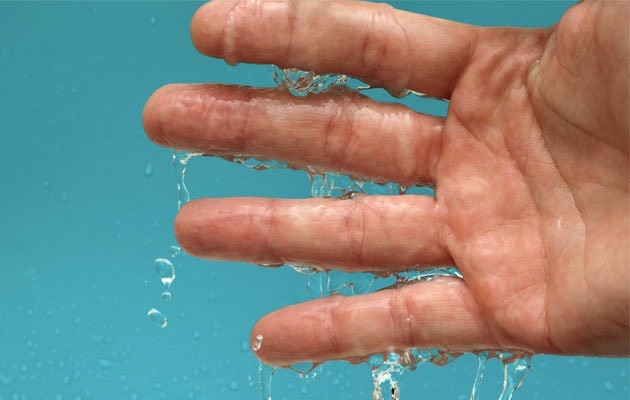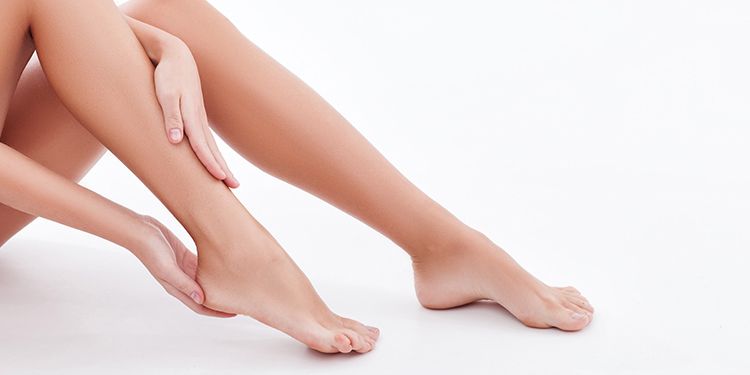Dermatology Tips and Treatments for Hyperhydrosis of Hands: Innovative Solutions
Dermatology Tips and Treatments for Hyperhydrosis of Hands: Innovative Solutions
Blog Article
Recognizing the Source of Excessive Sweating and Its Effect On Life
While it is typically understood as a physiological reaction to regulate body temperature, the triggers for excessive sweating can vary extensively amongst people, encompassing not only physical aspects however emotional and also emotional elements. By delving into the root triggers of hyperhidrosis and discovering its diverse impacts, a deeper understanding of this prevalent concern can be obtained, losing light on the intricacies that people grappling with too much sweating browse on a day-to-day basis.
Physiology of Sweat Glands
The guideline of sweat manufacturing, a crucial physiological procedure, is mainly controlled by the activity of sweat glands dispersed throughout the human body. Sweat glands are categorized into 2 primary types: eccrine and apocrine glands.
When the body temperature level increases, either due to exercise, heats, or psychological tension, the nerves causes the sweat glands to produce sweat. This sweat is made up mostly of water and electrolytes like salt and chloride. The process of sweat manufacturing is important for keeping the body's internal temperature within a slim, optimal variety, highlighting the critical function gland play in human physiology.
Triggers for Excessive Sweating
In recognizing the origin causes of excessive sweating, it is important to recognize the triggers that can lead to this physical feedback. Physical effort, high temperatures, and spicy foods are likewise understood to activate too much sweating in people vulnerable to this problem.
Furthermore, drugs such as some antidepressants, opioids, and specific supplements can additionally act as triggers for hyperhidrosis. Understanding these triggers is important in managing excessive sweating efficiently - Exessive Sweating. By identifying and addressing the specific triggers that prompt excessive sweating in a specific, health care companies can develop tailored therapy strategies to ease this condition and improve the individual's lifestyle
Medical Issue Associated
Linked with extreme sweating are various clinical conditions that can worsen this physiological action. One common condition is hyperhidrosis, a disorder characterized by extraordinarily enhanced sweating that goes beyond the body's thermoregulatory requirements. This can show up in focal areas like the palms, soles, underarms, or face, impacting a person's lifestyle because of social shame and discomfort.
Furthermore, endocrine disorders such as hyperthyroidism, diabetic issues, and menopausal warm flashes can also lead to extreme sweating. Hyperthyroidism creates an overproduction of thyroid hormones, accelerating metabolism and triggering sweating.
Moreover, infections like endocarditis, hiv, and consumption have actually been connected with night sweats, a typical symptom recognized to interrupt sleep and influence total well-being. These medical problems highlight the diverse range of underlying factors that can contribute to too much sweating, requiring comprehensive assessment and administration by medical care specialists.
Psychological and Psychological Elements

Effect On Social Interactions
Excessive sweating can have profound impacts on a person's capacity to engage conveniently in social communications. The noticeable indicators of sweat stains or wet patches on apparel can bring about embarrassment and self-consciousness, creating individuals to withdraw from social circumstances. This withdrawal can influence relationships, restriction social activities, and impede personal and expert growth.

Additionally, the anxiousness and self-worth issues stemming from excessive sweating can impact interaction and interpersonal abilities. Individuals might struggle to focus on conversations, join group activities, or share themselves confidently. This can bring about feelings of seclusion and loneliness, as social links become testing to keep.
Final Thought
:max_bytes(150000):strip_icc()/the-doctor-cosmetologist-makes-injections-of-botulinum-toxin-on-the-palms-of-a-woman-against-hyperhidrosis--women-s-cosmetology--skin-care--1254089846-9a8ff2f7f5dc47f18339b3c9d138c5fd.jpg)
While it is frequently comprehended as a physiological action to control body temperature, the triggers for excessive sweating can vary widely amongst people, incorporating not only physical elements yet also emotional and emotional components. By delving into the root creates of hyperhidrosis and discovering its diverse effects, a deeper understanding of this prevalent problem can be acquired, shedding light on the complexities that people grappling with excessive sweating navigate on an everyday basis.
Physical effort, high temperature levels, and spicy foods are additionally known to trigger too much sweating in individuals prone to this problem. By determining and attending to the particular triggers that motivate extreme sweating in an individual, healthcare providers can create customized treatment strategies to alleviate this condition and improve the individual's high quality of life.
Extreme sweating can have profound results on a person's ability to involve conveniently in social communications.
Report this page